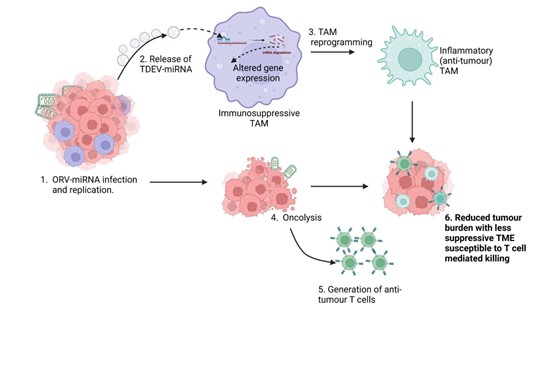Dr Vicki Jennings
Independent Research Fellow in Epithelial Cancer Immunology
Profile
Biography
Dr Vicki Jennings earned her PhD from the University of Leeds in 2008, where she investigated oncolytic virus and cellular immunology combination strategies for the treatment of ovarian cancer. She then moved to Canada to join Dr. John Bell's laboratory at the Ottawa Hospital Research Institute, where she pioneered the development of novel oncolytic viruses designed to target key immunosuppressive cells within tumours. After returning to the UK, Vicki took on a five-year postdoctoral fellowship at the Institute of Cancer Research in London, further honing her immunology expertise, developing novel 3D human systems to investigate cancer immunotherapies in vitro. Subsequently, she received funding from Ovarian Cancer Action to continue her work on the development of novel oncolytic viruses for ovarian cancer treatment. In December 2024, Vicki moved to the University of York to begin a five-year independent fellowship as an independent group leader in epithelial cancer immunology.
Key publications
Research
Overview
My lab is focused on exploring strategies to harness the immune system to recognise and destroy tumour cells, as well as investigating the mechanisms underlying tumour-induced immune tolerance. Our primary goal is to identify the key processes that induce and sustain the immunosuppressive environment within tumours and to develop approaches to counteract these effects. Central to my lab’s work is testing novel therapies in patient-derived models, which allows us to better understand the complexity and heterogeneity of the tumour microenvironment. By deepening our understanding of tumour-induced immunosuppression, we will be able to develop more effective and kinder treatments for cancer patients.
A key aspect of my lab's research is focussed around oncolytic viruses which are a novel form of cytotoxic cancer immunotherapy. Oncolytic viruses specifically infect, replicate and kill cancer cells, leaving non-cancerous cells unharmed and in doing so activate ‘killer’ immune cells that can generate long-lived anti-tumour responses. Critically, oncolytic viruses can be genetically modified to express molecules such as miRNAs which are disseminated throughout the tumour (in tumour derived extracellular vesicles). My lab is focussed on developing miRNA and oncolytic virus therapeutics that result in reduced tumour burden due to (i) oncolytic virus induced cell death, (ii) destruction of tumour cells by anti-tumour macrophages and (iii) cancer cell death induced by a more effective ‘killer’ immune population.
Overview of Approach

![]()
